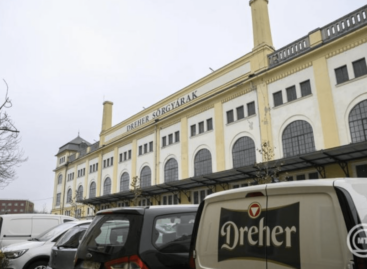Péter Szijjártó: last year was the second most successful year in economic history in terms of investment promotion
Last year was the second most successful year in the history of the Hungarian economy in terms of investment promotion, with 4,000 billion forints of new investment coming to our country based on the agreements concluded in 2024, Minister of Foreign Affairs and Trade Péter Szijjártó announced in Budapest on Thursday.
 According to a statement from the ministry, the Minister emphasized that recent years have been characterized by dangers and crises, the effects of which have also rippled through the economy.
According to a statement from the ministry, the Minister emphasized that recent years have been characterized by dangers and crises, the effects of which have also rippled through the economy.
“Armed conflicts, terrorist threats, health crises – all have caused extraordinary difficulties for players in the global economy,”
– he pointed out.
In this regard, he explained that a new global economic era has begun as a result of all this, and the changes have triggered extremely fierce global competition for investments. According to him, which countries can be among the winners of the new era will be determined mainly by who can attract the most advanced technological investments.
“And in this competition
Hungary performed excellently last year, despite the extraordinary difficulties
(…) 2024 became the second most successful year in the history of the Hungarian economy in terms of investment promotion,”
he underlined.
He then reported that the government had concluded agreements with seventy-seven companies on new investments, which represent a total value of 4,000 billion forints.
Péter Szijjártó welcomed the fact that most of these investment projects are being implemented by Hungarian companies, with agreements being reached with twenty-three companies, which is unprecedented.
“The strategy of economic neutrality also works, and in fact, it is the only one that works if we look around the world,”
he opined.
In support of this, he pointed out that the largest investment volume is represented by the seven Chinese companies involved, which account for half of the total investment value, but South Korean and Japanese companies have also made decisions on new large investments.
Related news
HIPA: new rules come into effect in the support system awarded through individual government decisions
🎧 Hallgasd a cikket: Lejátszás Szünet Folytatás Leállítás Nyelv: Auto…
Read more >Related news
How Coca-Cola plans to build more billion-dollar brands
🎧 Hallgasd a cikket: Lejátszás Szünet Folytatás Leállítás Nyelv: Auto…
Read more >Tesco sets out store expansion plans in 2026 including five former Amazon Fresh sites
🎧 Hallgasd a cikket: Lejátszás Szünet Folytatás Leállítás Nyelv: Auto…
Read more >









